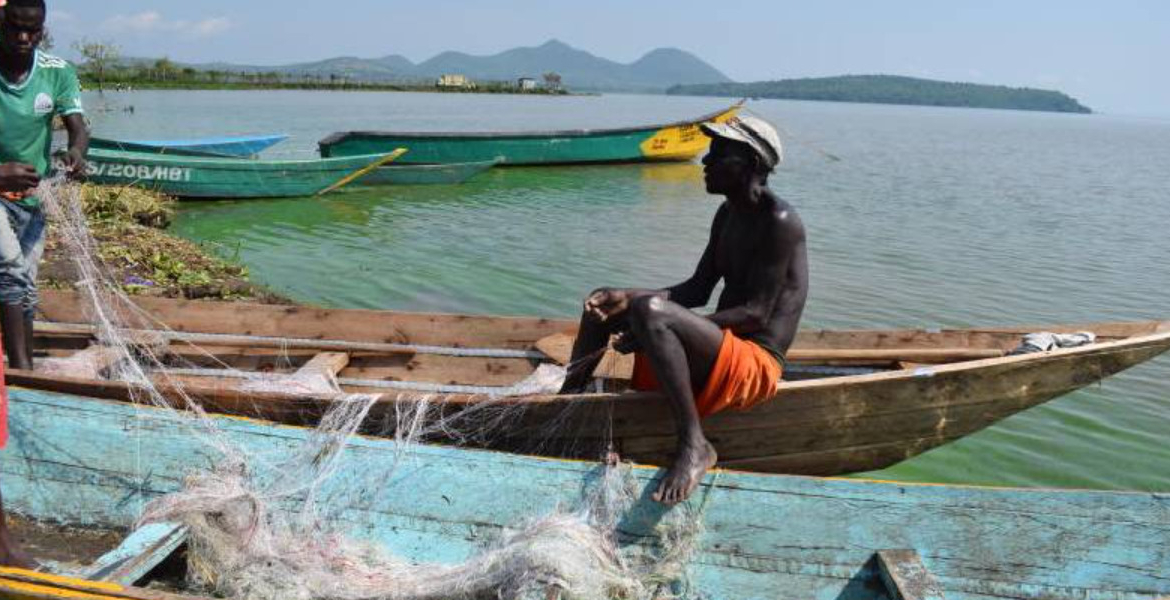The Hidden Threat That Could Wipe Tilapia Off East African Menus

Lake Victoria, East Africa’s largest freshwater lake, faces an escalating ecological crisis that is decimating fish populations and jeopardising the livelihoods of millions.
Fishermen like Joseph Ochieng are catching fewer fish, showing how badly the lake’s environment is being damaged. Scientists warn that the lake is experiencing one of the most severe extinctions in modern history. Shared by Kenya, Uganda, and Tanzania, Lake Victoria was once a biodiversity hotspot, home to an estimated 600 endemic cichlid species. These vibrantly coloured fish, uniquely adapted to the lake’s various ecological niches, played essential roles in maintaining the ecosystem's health.
The lake stood as a remarkable example of adaptive radiation. However, this rich biological heritage has been significantly eroded. The introduction of the Nile perch in 1954 marked a turning point. Colonial officials, seeking to boost economic growth through commercial fishing, introduced the carnivorous giant into the lake. The Nile perch thrived, preying on native fish species, and by the 1980s, its population had exploded. In the 1990s, it dominated fish exports across the Lake Victoria basin, fueling a booming commercial fishery.
This economic success masked a profound biological catastrophe. Scientists estimate that as many as 200 endemic species have vanished, many becoming extinct before they could be properly documented. The Haplochromine cichlids, once numbering in the hundreds and forming the cornerstone of the lake’s ecological complexity, have been particularly hard hit. The loss of these species represents the collapse of an ancient and intricate evolutionary history.
For the 85 million people in East Africa who rely on freshwater fisheries for sustenance and income, the implications are dire. Fishing communities grapple with dwindling fish stocks, increasing fuel costs, and declining profits. Traditional fishing methods have given way to desperate measures, including the use of fine-meshed mosquito nets that indiscriminately capture juvenile fish, exacerbating the decline they seek to overcome.
"Africa is a global hotspot of freshwater fish diversity, home to over 3,200 species, but it’s also a hotspot of risk," cautions Eric Oyare, Africa Freshwater Lead at the World Wildlife Fund.
The economic significance of Lake Victoria’s fisheries remains substantial. The sector generated over US$320 million in annual export revenue at its peak in 2005, driven by international demand for Nile perch fillets. Industrial processing plants sprang up around the lake, creating jobs and fostering a narrative of development underpinned by biological exploitation. Uganda, ranked sixth globally in wild-caught inland fish production, and Tanzania, where freshwater fish constitute the majority of national consumption, have built significant portions of their fisheries economies around the Nile perch.
This growth, however, was unsustainable. The very success of the Nile perch has contributed to its undoing, as overfishing began to deplete even this resilient predator. With native prey species either gone or critically endangered, the food web is now critically unbalanced. The ecological collapse of Lake Victoria threatens the foundation of the industrial fishery itself.
Environmental degradation further compounds the problem. The introduction of water hyacinth, an invasive floating plant native to South America, is destabilising the lake. These invasive mats block sunlight and oxygen exchange, suffocating aquatic life and making fishing treacherous. Nutrient pollution from agriculture, urbanisation, and deforestation contributes to eutrophication, leading to algae blooms and oxygen-starved waters that are hostile to native species recovery.
Machaya Chomba, Africa Freshwater Protection Manager at The Nature Conservancy, argues that the crisis is more than a biodiversity concern. "The disappearance of freshwater fish is not just a biodiversity crisis, it is a direct threat to food, livelihoods and cultural identity for millions across Africa," she explains.





Add new comment